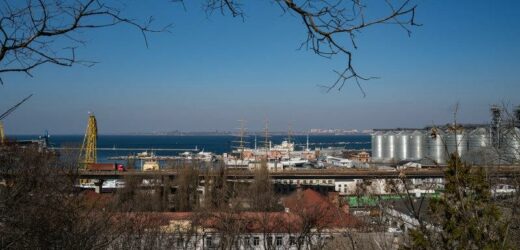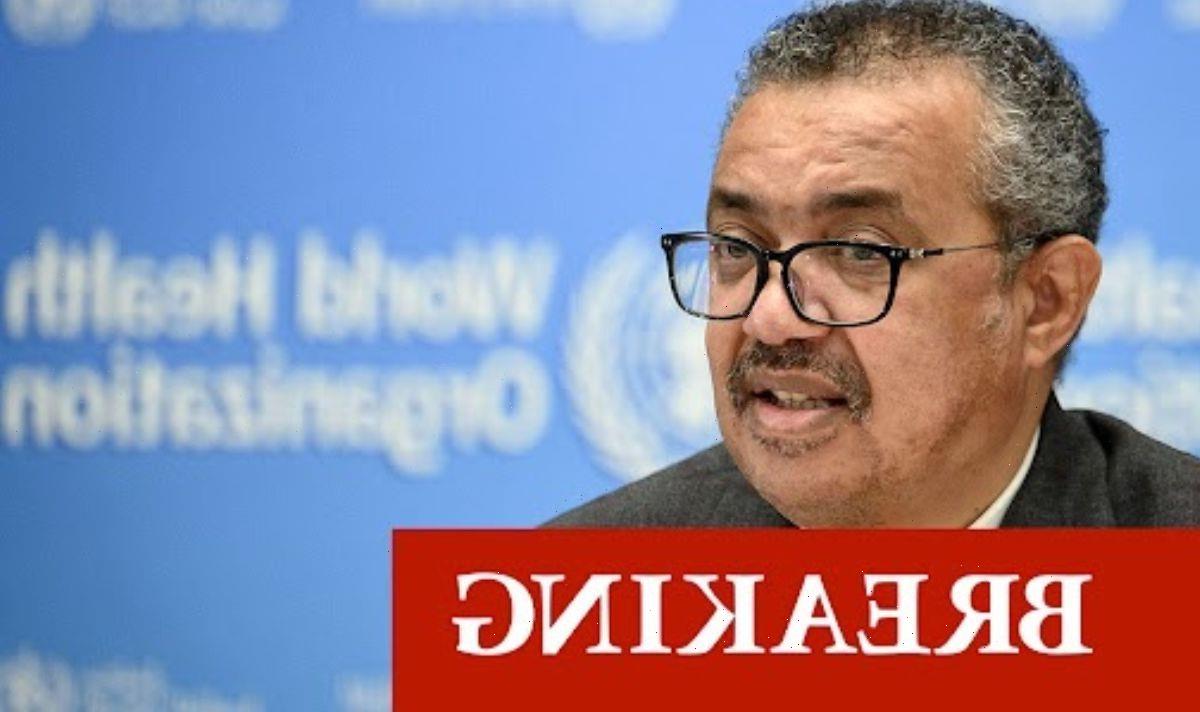Kyiv: Russian missiles hit the major port of Odessa in southern Ukraine on Saturday, the Ukrainian military said, dealing a blow to a deal signed on Friday to unblock grain exports from Black Sea ports.
The landmark deal signed by Moscow and Kyiv in Turkey on Friday is seen as crucial to curbing soaring global food prices, easing a supply crunch by allowing certain exports to be shipped from Black Sea ports including Odessa.
UN Secretary General, Antonio Guterres, right, and Russian Defence Minister Sergei Shoigu, left, sign the documents at Dolmabahce Palace in Istanbul, Credit:AP
United Nations officials had said on Friday they hoped the agreement would be operational in a few weeks but it was not yet clear if that would still be possible, given Saturday’s strikes.
“The enemy attacked the Odessa sea trade port with Kalibr cruise missiles,” Ukraine’s Operational Command South wrote on the Telegram messaging app.
Two Russian missiles hit infrastructure at the port, while another two were shot down by Ukrainian air defence forces, it said. It didn’t specify the damage or say whether the strike caused casualties.
The Ukrainian Foreign Ministry denounced Saturday’s strike as “spit in the face” of Turkey and the UN, which brokered the agreement.
A port in Odessa, Ukraine, on March 15.Credit:Salwan Georges/Washington Post
“It took less than 24 hours for Russia to launch a missile attack on Odessa’s port, breaking its promises and undermining its commitments before the UN and Turkey under the Istanbul agreement,” Ukrainian Foreign Ministry spokesman Oleg Nikolenko said. “In case of non-fulfillment, Russia will bear full responsibility for a global food crisis.”
Ukraine’s Foreign Ministry called on the UN and Turkey to ensure that Russia fulfils its commitments and allows free passage in the grain corridor.
The US ambassador to Kyiv, Bridget Brink, called the strike “outrageous”.
“The Kremlin continues to weaponise food. Russia must be held to account,” Brink wrote on Twitter.
Russia’s defence ministry did not reply to a Reuters request for comment.
A blockade of Ukrainian ports by Russia’s Black Sea fleet since Moscow’s invasion of its neighbour on February 24 has trapped tens of millions of tonnes of grain and stranded many ships. This has worsened global supply chain bottlenecks and, along with Western sanctions on Russia, stoked food and energy price inflation.
Russia and Ukraine are major global wheat suppliers, and the war sent food prices soaring. A global food crisis has pushed about 47 million people into “acute hunger”, the World Food Program said.
Friday’s deal seeks to avert famine in poorer nations by injecting more wheat, sunflower oil, fertiliser and other products into world markets, including for humanitarian needs, partly at lower prices.
UN officials said on Friday the deal, expected to be fully operational in a few weeks, would restore grain shipments from the three reopened ports to prewar levels of 5 million tonnes a month.
Under the deal, Ukrainian officials would guide ships through safe channels across mined waters to three ports, including Odessa, where they would be loaded with grain.
Moscow has denied responsibility for the crisis, blaming Western sanctions for slowing its own food and fertiliser exports and Ukraine for mining the approaches to its Black Sea ports.
Ukrainian President Volodymyr Zelenskiy said on Friday the deal would make about $US10 billion ($14 billion) worth of grain available for sale with roughly 20 million tonnes of last year’s harvest to be exported.
Along with the strike on Odessa, Russia’s military fired a barrage of missiles on Saturday at an airfield and a railway facility in central Ukraine, killing at least three people, while Ukrainian forces launched rocket strikes on river crossings in a Russian-occupied southern region.
The attacks on key infrastructure marked new attempts by the warring parties to tip the scales of the grinding conflict in their favour.
In Ukraine’s central Kirovohradska region, 13 Russian missiles struck an airfield and a railway facility. Governor Andriy Raikovych said that at least one serviceman and two guards were killed. The regional administration reported the strikes near the city of Kirovohrad wounded another 13 people.
In the southern Kherson region, which Russian troops seized early in the invasion, Ukrainian forces preparing for a potential counteroffensive fired rockets at Dnieper River crossings to try to disrupt supplies to the Russians.
Despite the progress on that front, fighting raged unabated in eastern Ukraine’s industrial heartland of the Donbas, where Russian forces tried to make new gains in the face of stiff Ukrainian resistance.
Russian troops also have faced Ukrainian counterattacks but largely held their ground in the Kherson region just north of the Crimean Peninsula, which Russia annexed in 2014.
Reuters, AP
Get a note direct from our foreign correspondents on what’s making headlines around the world. Sign up for the weekly What in the World newsletter here.
Most Viewed in World
From our partners
Source: Read Full Article




